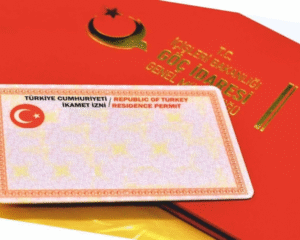Introduction
Moving to Turkey is more than just a change of scenery; it’s often a leap of faith. You come for the sunshine, the food, the affordability, or perhaps the slower pace of life. But once you’ve settled into your new neighborhood and the novelty wears off, a question inevitably comes up: how do I stay here legally, long-term? That’s where the Turkey ikamet, or residence permit, comes in.
For years, the process was fairly straightforward. You gathered your documents, applied online, attended a short interview, and a few weeks later, your ikamet card arrived in the mail. But as of 2025, that process is no longer so simple. Turkish immigration laws have changed, and the bar has been raised.
This article walks you through the latest updates to the Turkey ikamet process in 2025, what’s harder now, what’s still doable, and what you need to know to avoid costly delays or rejections.

Why 2025 Marks a Shift in Immigration Policy
Turkey has long been a welcoming destination for expats, retirees, and digital nomads, especially those looking to stay on a budget compared to Western Europe. But over the past few years, the Turkish government has started tightening immigration regulations in response to rising numbers of foreign residents, particularly in major cities and coastal areas.
The result? In 2025, getting a residence permit, especially a short-term one, requires more proof, more intention, and more precision than ever before. Authorities are now focused on ensuring that foreigners have a legitimate reason to stay, strong local ties, and the means to support themselves.
In other words, it’s no longer enough to simply say, “I love living here.” You need to prove that you’re integrating, not just visiting long-term.
Short-Term Ikamets: No Longer a Loophole
For years, the short-term ikamet was the go-to option for the newest arrivals. You didn’t need to own property, have a job, or even speak Turkish. You could apply under the vague category of “tourism” and receive a permit for up to a year. Many people renewed it multiple times with no issue.
But that’s changed. As of 2025, Turkish immigration authorities are rejecting tourist-based ikamet renewals more frequently, especially if there’s no evidence of deeper ties to the country. Applications that once passed easily are now being questioned or denied outright.
Officials are looking for signals of commitment, things like:
- Long-term leases or property ownership
- Proof of financial self-sufficiency in Turkey (not just foreign bank accounts)
- Turkish tax payments or business activity
- Enrollment in a Turkish language course or university
If you’ve lived in Turkey for over a year, you’ll likely be asked what has changed in your situation. If your reason for staying is still “tourism,” you may be told that it’s time to move on or reapply under a different, more appropriate category.
Health Insurance Rules Are Tighter Than Before
Another major area of focus in 2025 is health insurance. In previous years, some applicants got by with minimal, even questionable, private policies just to meet the requirement. But now, that won’t fly.
Immigration offices are verifying insurance policies more thoroughly. Your policy must be:
- Issued by a registered Turkish insurance provider
- Cover both outpatient and inpatient services
- Valid through the entire length of your requested stay
Policies that don’t meet these standards are being flagged, and applicants are often told to purchase a new one, sometimes just days before their appointment. It’s best to play it safe and get your policy through a licensed Turkish agent rather than relying on random online options that may not be accepted.
Address Proof Is Now a Common Reason for Rejection
This might sound like a small detail, but it’s one of the most common causes for rejected ikamet applications in 2025: mismatched or unverifiable addresses.
When you submit your application, the address on your rental contract must exactly match the one you provide online, down to the neighborhood name and building number. If you’re staying with someone, they’ll need to sign a notarized declaration of accommodation and provide a utility bill in their name. Landlords are often contacted by immigration officials to confirm your residence.
In short, every document must support the same address, and that address must be eligible for the ikamet registration. A typo or discrepancy can delay your application or trigger a rejection. Double-check everything before you submit.

Some Districts Are Now “Closed” to Foreign Applicants
One of the biggest changes still in effect in 2025 is that certain neighborhoods are off-limits to new ikamet applicants. The Turkish government has imposed quotas on the number of foreigners allowed to register in specific districts, a policy aimed at preventing overcrowding and promoting better integration.
As of now, districts like Fatih and Esenyurt in Istanbul, along with parts of Antalya and Bursa, are either restricted or closed entirely to new foreign residents. Even if your paperwork is flawless, applying from one of these districts could result in automatic rejection.
If you’re planning to rent a home or renew your permit, it’s crucial to first check with the local Göç İdaresi or a trusted consultant to make sure the district is still open to foreign applications.
Appointments and Processing Times: Expect Delays
Back in the day, you could sometimes get your ikamet appointment (called a randevu) in just a few days and receive your card in under a month. That’s no longer typical.
In 2025, wait times are longer due to increased application volume and tighter scrutiny. It may take:
- 2 to 6 weeks to get your appointment
- 4 to 8 weeks for your residence card to be delivered via PTT
In the meantime, you’re allowed to stay in Turkey legally, as long as you’ve submitted your application and attended your appointment. However, international travel is risky before receiving your card unless you apply for a special exit-entry document. Otherwise, you may be denied re-entry or forced to start the process all over again.
Final Thoughts
Turkey isn’t closing its doors. But it is asking for more commitment from those who want to stay. If you’re serious about living here, it’s time to treat the ikamet not as a formality, but as a real immigration process.
Come prepared. Take the time to understand the requirements. Double-check your address. Get proper insurance. And most importantly, present a clear, consistent reason for staying.
Don’t let new regulations catch you off guard. Navyx stays ahead of the curve, offering full support through our €1,590 Package, including permit help and rental search.
With Navyx, you’ll always be one step ahead – legally and practically.
